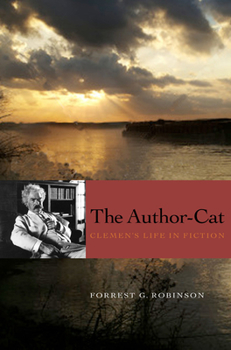The Author-Cat: Clemens's Life in Fiction
Select Format
Select Condition 
Book Overview
At the end of his long life, Samuel Clemens felt driven to write a truthful account of what he regarded as the flaws in his character and the errors of his ways. His attempt to tell the unvarnished truth about himself is preserved in nearly 250 autobiographical dictations. In order to encourage complete veracity, he decided from the outset that these would be published only posthumously.Nevertheless, Clemens's autobiography is singularly unrevealing. Forrest G. Robinson argues that, by contrast, it is in his fiction that Clemens most fully-if often inadvertently-reveals himself. He was, he confessed, like a cat who labors in vain to bury the waste that he has left behind. Robinson argues that he wrote out of an enduring need to come to terms with his remembered experiences-not to memorialize the past, but to transform it.By all accounts-including his own-Clemens's special curse was guilt. He was unable to forgive himself for the deaths of those closest to him-from his siblings' death in childhood to the deaths of his own children. Nor could he reconcile himself to his role in the Civil War, his part in the duel that prompted his departure from Virginia City in 1864, and-worst of all-his sense of moral complicity in the crimes of slavery.Tracing the theme of bad faith in all of Clemens's major writing, but with special attention to the late work, Robinson sheds new light on a tormented moral life. His book challenges conventional assumptions about the humorist's personality and creativity, directing attention to what William Dean Howells describes as the depths of a nature whose tragical seriousness broke in the laughter which the unwise took for the whole of him.
Format:Hardcover
Language:English
ISBN:0823227871
ISBN13:9780823227877
Release Date:November 2007
Publisher:Fordham University Press
Length:272 Pages
Weight:1.10 lbs.
Dimensions:0.9" x 6.5" x 9.0"
Customer Reviews
0 rating





